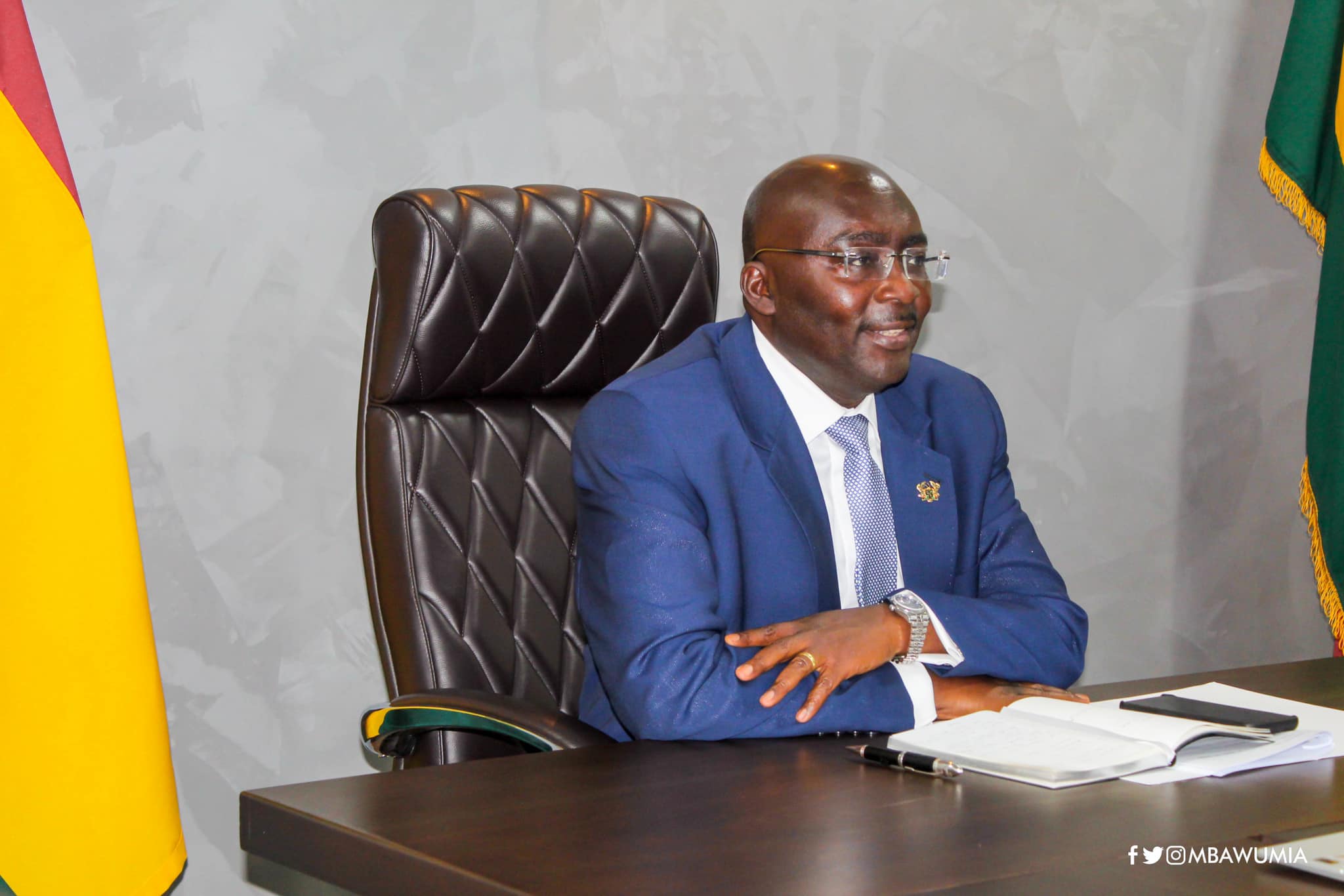Gold producing member companies of the Ghana Chamber of Mines will, between now and December 2022, sell about 125,000 ounces of gold the equivalent of 3.5 tonnes of gold to the Bank of Ghana (BoG) under the central bank’s Domestic Gold Purchase Programme.
BoG’s gold holdings to increase to 12.2 tonnes
This will increase BoG’s gold holdings from the existing 8.7 tonnes to 12.2 tonnes by end of this year.
Gold holdings to double in 5 years
The plan is to double its gold holdings in the next five years from 8.7 tonnes the equivalent 306,883 ounces to 17.4 tonnes the equivalent 613,766.9 ounces.
3,500 ounces purchased from Newmont already
Newmont Ghana had already sold 3,500 ounces of gold to the Bank of Ghana as part of the programme.
The announcement followed a meeting between Vice-President Alhaji Dr. Mahamudu Bawumia, some other members of the Economic Management Team, (BoG), the Ministry of Lands and Natural Resources, Minerals Commission, PMMC as well as the leadership of the Chamber.
It was to consider the implementation of the BoG’s Gold Purchase Programme in the light of the country’s economic challenges.
Dr. Bawumia noted after the meeting that “it was agreed that to help shore up the foreign exchange reserves of the Bank of Ghana, starting September 1, BoG will purchase a portion of the output of the gold mining companies on a continuous basis at world market prices, but payment will be made in Ghana cedis”.
The Vice-President stated that this will represent a significant and sustainable addition to Ghana’s foreign exchange reserves over time and strengthen the country’s balance of payments position.
President of the Chamber, Joshua Mortoti stated that “as good corporate citizens the Chamber supports the programme”. Noting that the Gold Purchase Programme will be mutually beneficial to all stakeholders.
On his part, the Chief Executive Officer of the Chamber, Dr. Sulemanu Koney, stated that members of the Chamber will further engage the Central Bank to fast-track the implementation of the programme.
Discussions on the Gold Purchase Programme started in 2020 between the BoG and gold producing member companies of the Chamber to support the Ghana’s foreign exchange reserves.
The Ghana Chamber of Mines is the main minerals industry association in Ghana.
The Chamber represents the collective interests of companies involved in mineral exploration, production and processing in Ghana.
BoG decided to buy gold in 1960-61 financial year
During the 1960-61 financial year, BoG took a bold decision to increase the amount of gold to be held in the cover asset mix for the cedi.
$3.7m purchased abroad and imported to Ghana
As a result of this decision, a small amount of refined gold, valued at around $3.7 million at that time, was bought overseas and transported to the bank’s vault.
Effects of fall in the value of gold in the 1960s
The fall in the value of gold in the 1960s saw a shift in policy away from gold as a cover asset to foreign currency and securities.
Ghana produced 1,248.7 tonnes of gold in 10 years
It is of interest to know that Ghana’s gold production in the past decade between 2011 and 2020 was 1,248.7 tonnes.
Annual breakdown of gold production
The annual production figures are 2011 (87.6 tonnes), 2012 (98.6 tonnes), 2013 (94.8 tonnes), 2014 (137.1 tonnes), 2015 (130.4 tonnes), 2016, (129 tonnes), 2017 (129.7 tonnes), 2018 (149.1 tonnes), 2019 (142.4 tonnes), and 2020 (150 tonnes).
BoG is buying gold from selected local aggregators and mining firms and pay in the local currency at the prevailing market price.
The domestic purchasing programme has potential to improve the small-scale gold mining sector by ensuring they receive a fair purchasing price for their gold, provide an incentive to formalise and move away from damaging environmental and social practices.
Formalise and improve ability to sell into formal gold markets
It will also lead to a route to formalise and improve ability to sell into formal gold markets, and thereby reduce their vulnerability to illegal actors in the domestic and international gold supply chains.
Gold has a profound impact on the value of world currencies
Even though the gold standard has been abandoned, gold as a commodity can act as a substitute for fiat currencies and be used as an effective hedge against inflation.
A country that exports gold or has access to gold reserves will see an increase in the strength of its currency when gold prices increase, since this increases the value of the country’s total exports.
In other words, an increase in the price of gold can create a trade surplus or help offset a trade deficit.
Conversely, countries that are large importers of gold will inevitably end up having a weaker currency when the price of gold rises.
Gold will continue to play an integral role in the foreign exchange market.
Gold is used to hedge against inflation
Investors typically buy large quantities of gold when their country is experiencing high levels of inflation.
The demand for gold increases during inflationary times is due to its inherent value and limited supply.
As it cannot be diluted, gold is able to retain value much better than other forms of currency.
The domestic purchasing programme had the potential to improve the small-scale gold mining sector by ensuring they receive a fair purchasing price for their gold, provide an incentive to formalise and move away from damaging environmental and social practices.
Formalise and improve ability to sell into formal gold markets
It will also lead to a route to formalise and improve ability to sell into formal gold markets, and thereby reduce their vulnerability to illegal actors in the domestic and international gold supply chains.
- Tight Race For Next GIS Boss - 10 March 2025
- Church of Jesus Christ, Ga Mantse Foundation renovate Adabraka School - 27 June 2024
- Manufacturers, Trade Minister tussle over proposed cement price regulation - 26 June 2024

